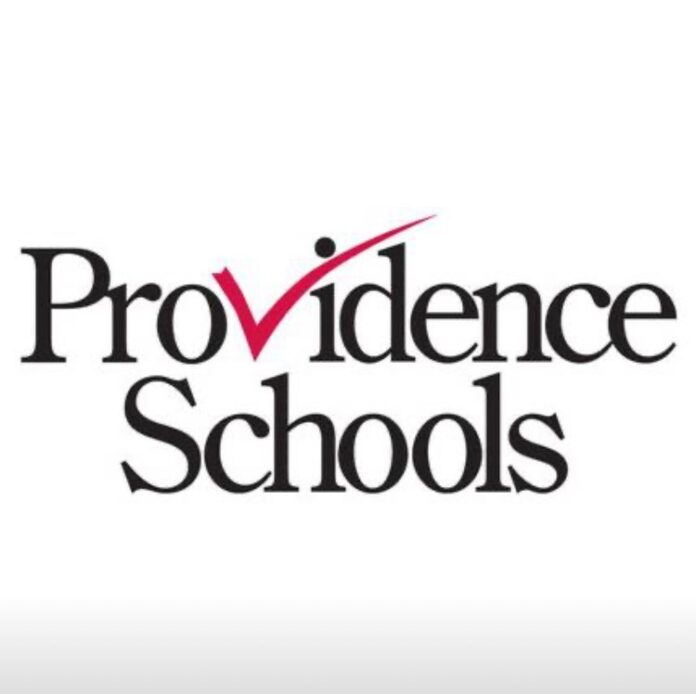PROVIDENCE – As a call to action, members of a Greater Providence Chamber of Commerce education subcommittee produced a series of recommendations on how local colleges and the Providence Public School District can better work collaboratively to create a teacher workforce pipeline for the district.
The subcommittee said in a joint statement committing to forming a new partnership to both address the district’s significant teacher shortage while simultaneously “maintaining the quality of mentoring experiences necessary for successful educator preparation.” Subcommittee members were from PPSD, Brown University, Providence College, Rhode Island College, Johnson & Wales University, the University of Rhode Island, Teach for America and researchers from Brown University’s Annenberg Institute.
The nine-page report the subcommittee created was based on interviews done back in the fall by Annenberg of all local college leaders and with PPSD’s human resources team. Those interviews, the report states, found that the partnerships between PPSD and local colleges on teacher training and mentoring “have tended to be weak.” The numbers further highlight the problem. According to the report, less than 1 in 5 new teacher hires in PPSD are recent graduates from Rhode Island-based colleges and universities.
“We know that teachers who are hired locally are the ones that tend to stay. It seems like a huge opportunity to [address this] when we know there is a high need for teachers, particularly in the high-need subject areas,” Annenberg Director of Applied Research Nathan Schwartz told Providence Business News.
The recommendations noted in the report follows up previous comments made by Christopher D. Graham, partner with law firm Locke Lord LLP who chairs the Chamber’s education council, in a Feb. 3 PBN focus story that spotlighted a lack of clear consensus as to how the business community can help the struggling state-controlled school district. Graham said at the time there has been a disconnect between the colleges and PPSD where they are “not working in partnership effectively” to get more urban teachers hired out of college and into Providence and a subcommittee was developing ways to address the problem.
Danielle Dennis, dean of URI’s Feinstein College of Education and Professional Studies who was part of the subcommittee, said the disconnect also stems from local colleges having their “own processes” for building partnerships with districts, which she says is difficult on a school district. There also have been some “inconsistent approaches” in Providence in how to partner with local colleges, she says.
“You put those things together, it’s as if the communication was running parallel rather than connecting,” Dennis said. “We need to place our or students in classrooms with experienced teachers who also can serve to be good mentors. When you are working with a district that has such a shortage, it’s also difficult then to find teachers who have that experience and ability to mentor.”
One recommendation the group suggests is reintroduce having a single PPSD staffer tasked with managing relationships with all the local colleges. Such a staffer would provide “clearer and more consistent communication and improved responsiveness” from the district office to local colleges, the report states.
The report also recommends redoubling efforts across all local colleges and training programs to consider PPSD’s staffing demands when investing in programs and making teacher placements. In other words, have colleges work with the district to find out which grades and subjects are most in need of teachers in the city. According to the report, one unidentified higher education leader said the college community recognizes that it is graduating “way too many elementary [teachers]” compared to other subjects in dire need, such as secondary English or math.
The report also noted that the work done by the local colleges and PPSD “will likely need additional resources” to fully implement the recommendations. Dennis acknowledged that those resources being sought mean additional funding and policies within the district that needs to change.
The subcommittee in the report says PPSD and the local higher education leaders will reconvene in June to review progress on the student teaching process and continue to strengthen collaboration with one another. Dennis says if progress is made between the local colleges and PPSD building a better pipeline, a positive difference could be seen as early as the next academic year.
“If we can do a better job of placing our student teachers in environments where they feel supported and successful, then I think there are more likely to stay in Providence schools as teachers of record,” Dennis said.
PPSD representatives did not immediately respond to requests for comment.
James Bessette is the PBN special projects editor, and also covers the nonprofit and education sectors. You may reach him at Bessette@PBN.com. You may also follow him on Twitter at @James_Bessette.













